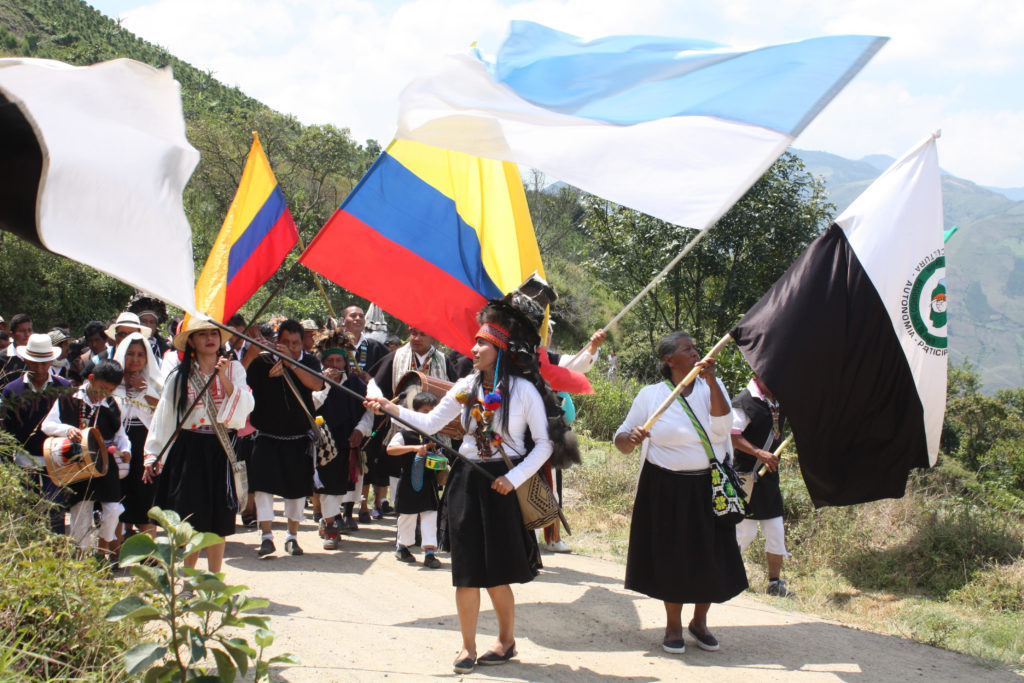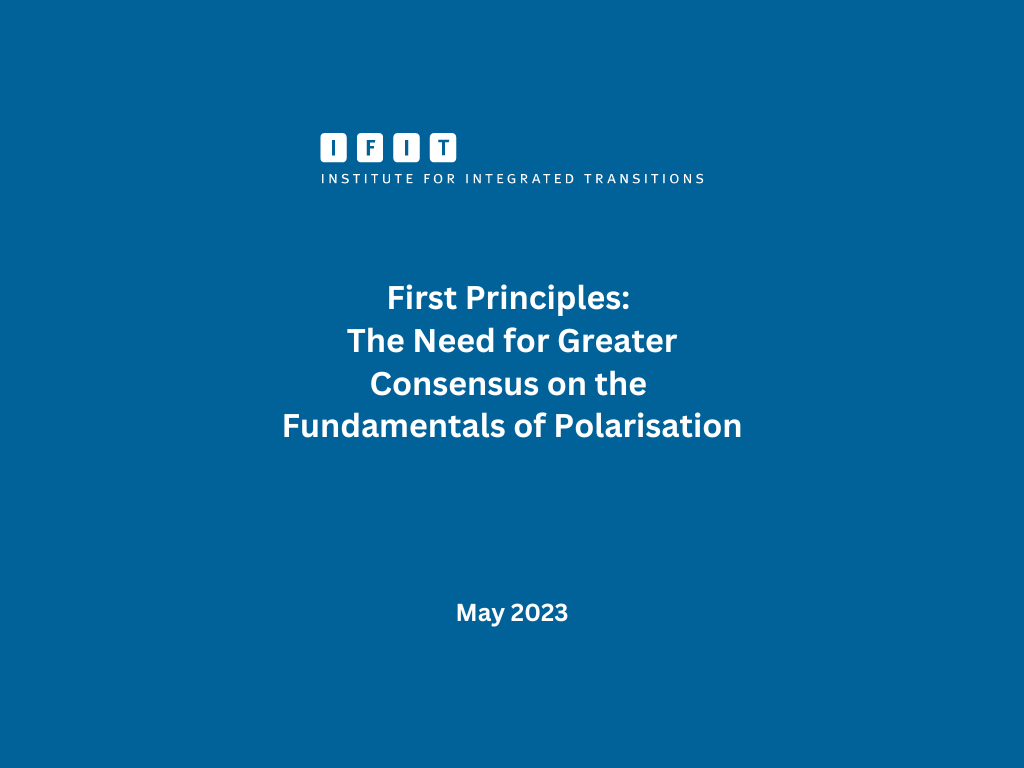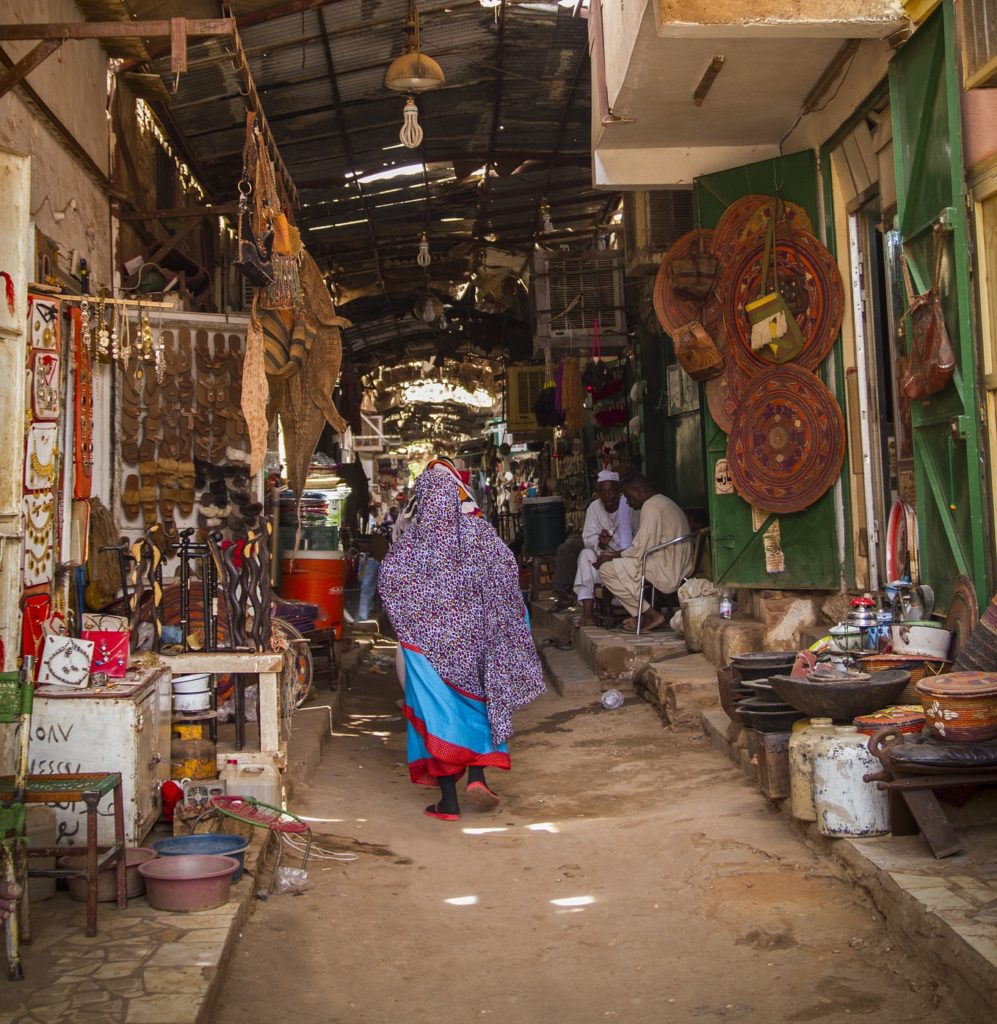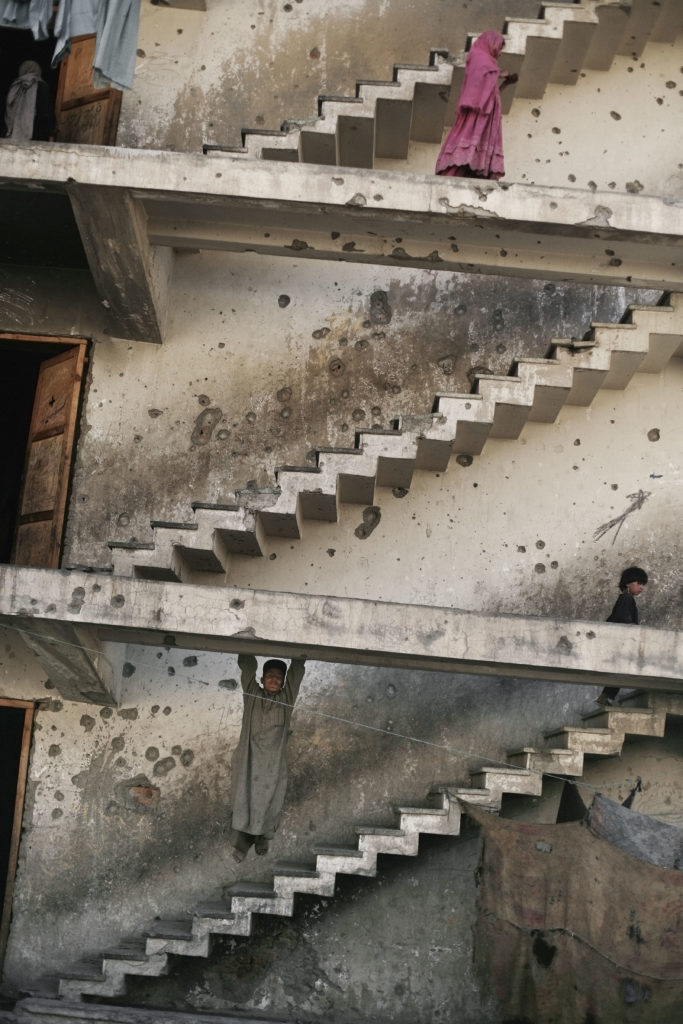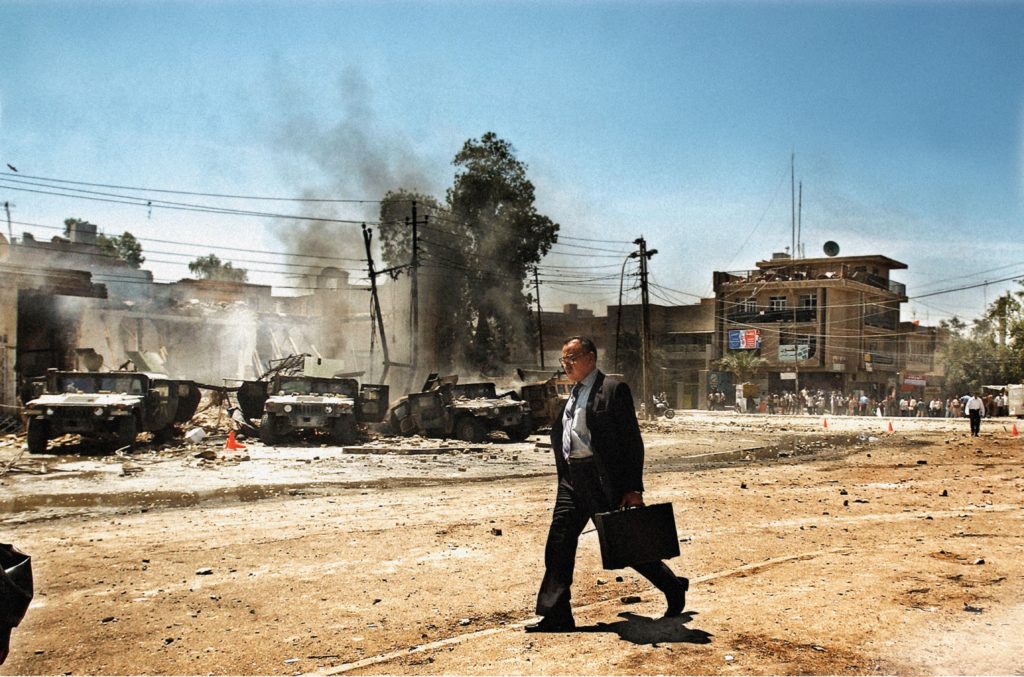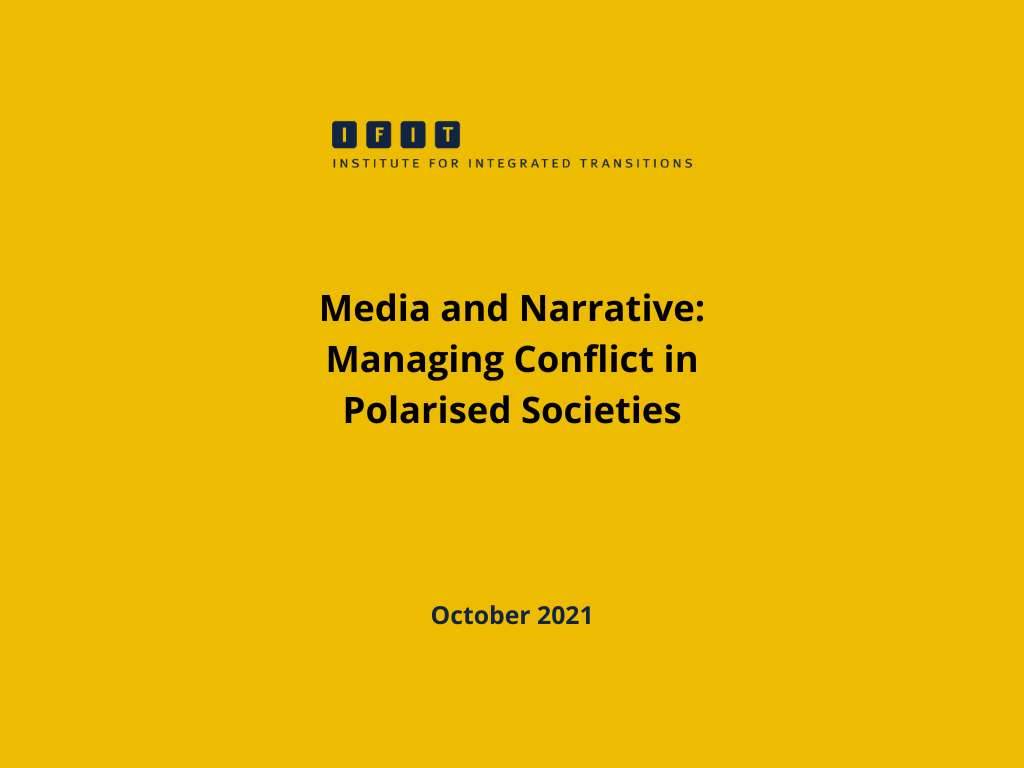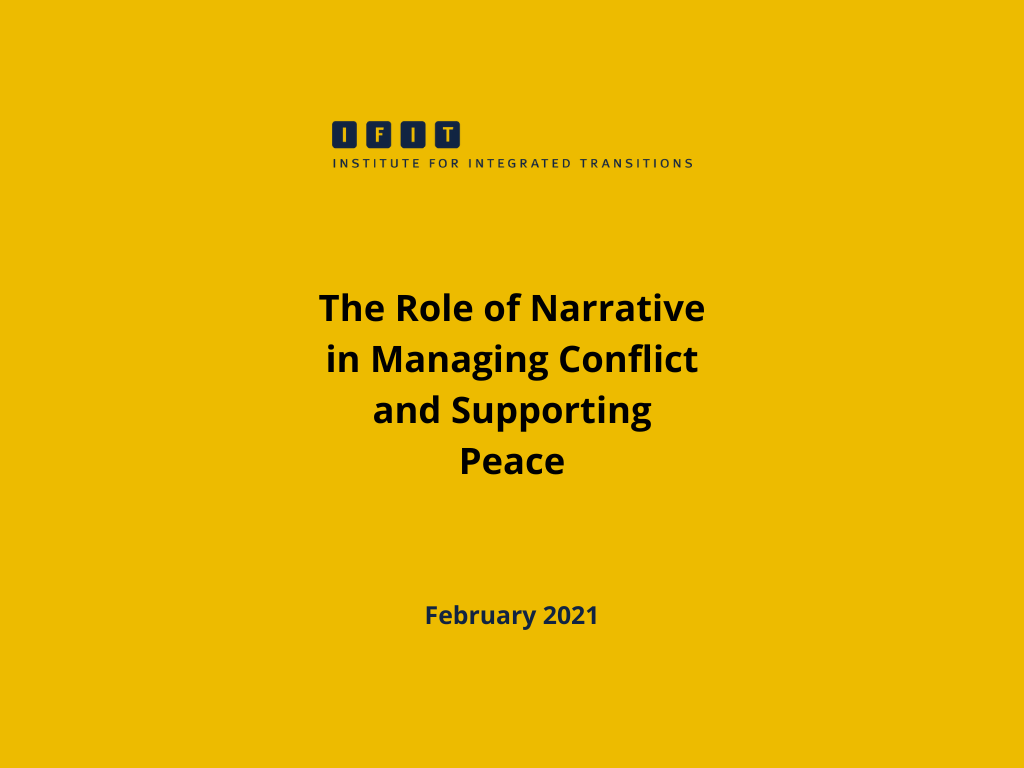Expert Team: Staff
María José is a research associate at the Institute for Integral Transitions (IFIT), based in the Bogotá office, where she leads the Regional Programme for Latin America and the Caribbean.
For more than 8 years, María José has worked on issues related to human rights, democracy and peacebuilding in international cooperation agencies, political foundations, and academia. Before joining IFIT, she worked with the Peace Agreement Matrix (PAM) of the Kroc Institute, where she supported the process of analysing the implementation of more than 15 peace processes around the world, including the monitoring of the implementation of the Peace Agreement in Colombia.
Prior to that, she was responsible for the Human Rights, Transitional Justice, and Humanitarian Assistance portfolio of the Swedish International Development Agency (Sida) in Colombia, where she supported the implementation of the transitional justice system designed by the Colombian peace agreement and assisted local NGOs providing humanitarian assistance to victims of the armed conflict and Venezuelan migrants.
María José holds a BA in Government and International Relations from the Universidad Externado de Colombia and a master’s degree in global affairs with a specialisation in international peace studies from the University of Notre Dame.
Working languages: Spanish, English, and Portuguese
You may also be interested in
Mariam Alsoudi is a Research Officer at the Institute for Integrated Transitions (IFIT), working primarily to support the Institute’s projects in Sri Lanka, Libya and Sudan. Born in Iraq and raised in Jordan, she holds a Bachelor of Science degree in Foreign Service from Georgetown University’s School of Foreign Service in Washington, D.C. where she majored in International Politics with a concentration in International Law. She also received a certificate in Arab Studies from Georgetown’s Center for Contemporary Arab Studies.
Mariam completed several internships during her undergraduate studies, including interning at the private office of King Abdullah II of Jordan at the Political Directorate at the Royal Hashemite Court, as well as at the Embassy of Jordan at the Jordan Information Bureau in Washington, D.C. While at Georgetown, Mariam was a member of several executive boards, including Georgetown’s Diplomatic Strategies, Georgetown’s International Student Association, and Georgetown’s Arab Society.
Working languages: English and Arabic
You may also be interested in
Laura Acevedo is the Administrative and Financial Assistant at the Institute for Integrated Transitions (IFIT), based in Bogotá.
Prior to joining IFIT, Laura worked in the Andean Region section of the Ford Foundation, supporting the programs and operations team. Here, she was responsible for organising events, trips, and meetings; coordinating agendas; and executing operational tasks. Previously, she worked at the British Council as a Project Coordinator, where she was in charge of carrying out budget execution, following activity schedules, preparing reports, coordinating events, and updating document databases.
Laura has a degree in hotel management from Politécnico Internacional.
Working languages: English and Spanish.
You may also be interested in
Marina Adán Marcos is a Research Officer at the Institute for Integrated Transitions (IFIT) based in its headquarters in Barcelona. There, she works mainly with its Transition Assistance Practice Group, and provides support to IFIT’s country projects in Nigeria and Uzbekistan. She is also leading a new line of research on alternative types of governance in areas of limited statehood.
Prior to joining IFIT, Marina worked in the OSCE, with the Secretariat’s External Co-operation Section and in the Permanent Representation of Spain. Before that, she worked at the Headquarters of the Ministry of Foreign Affairs of Spain, specifically at the Directorate General for the United Nations. She has also collaborated with the Paris Peace Forum.
Marina holds a master’s degree in International Security from Sciences Po Paris, with a specialisation in conflict resolution and peace mediation. She also holds a bachelor’s degree in International Relations.
Working languages: Spanish, English, French, and Russian.
You may also be interested in
Bimba Thomas Jr is the Project Lead of IFIT’s Middle Belt Brain Trust.
Over the past nine years, he has worked on various projects with GIZ, Search For Common Ground, Mercy Corps, and Mennonite Economic Development Associates in Northern Nigeria. Specifically, he worked with Mercy Corps on community reconciliation and joint economic projects amongst divided communities (farmer-pastoralist conflicts) and an inter-religious peacebuilding project in Northern Nigeria empowering the religious, community, youth, and women leaders to resolve intra- and inter-community conflicts. With Search for Common Ground, he worked on building a community-led peace architecture that involves diverse stakeholders from communities, businesses, security, and government. Most recently, with Mennonite Economic Development Associates, he worked on youth and women-led agro-entrepreneurship, processing, and market systems.
An entrepreneur at heart, Thomas has an interest in entrepreneurs as peacebuilders. He has experience working in the private sector setting up an agro-processing business. In his spare time, he works on the Irish potato value chain by growing, processing and improving the Irish potatoes market system in Nigeria.
Thomas has a Bachelor’s degree in Peace Studies and Conflict Resolution from Manchester University.
Working languages: English and Hausa
You may also be interested in
Dr. Jasmina Brankovic is a Research Associate with the Institute for Integrated Transitions (IFIT). Her research interests include narrative approaches to conflict management, socioeconomic transformation, climate justice, and civil society strategies for social change in transitional contexts, with a focus on participatory methods.
Jasmina is the co-author of Violence, Inequality and Transformation: Apartheid Survivors on South Africa’s Ongoing Transition (2020) and The Global Climate Regime and Transitional Justice (2018) and the co-editor of Advocating Transitional Justice in Africa: The Role of Civil Society (2018). She is the Senior Research Specialist at the Centre for the Study of Violence and Reconciliation, South Africa, and the Associate Editor of the International Journal of Transitional Justice. Jasmina has a PhD in Political Science from the University of Marburg.
Areas of expertise: transitional justice, violence prevention, climate justice, civil society strategies, participatory research, learning, monitoring and evaluation, Africa.
Working languages: English and Bosnian
You may also be interested in
Mariana Casij Peña is an Associate at the Institute for Integrated Transitions (IFIT) and manages the Law and Peace Practice Group and the Peace Treaty Initiative. She has led IFIT’s research on negotiating with violent criminal groups, supported the countering violent extremism project, and advised key stakeholders on transitional justice issues in contexts such as El Salvador, Nigeria, Ethiopia, the Gambia, and Libya. Additionally, for the past six years, she has overseen IFIT’s transitional justice work in Colombia.
Prior to joining IFIT, Mariana worked with the Presidential Advisor for Human Rights in Colombia and served as a legal adviser for the Victims Unit during the negotiations between the Colombian Government and the FARC, as well as during the subsequent implementation phase. She also worked for the Victims Unit on national cases of collective reparations and as a consultant for the Transitional Justice Directorate of the Colombian Ministry of Justice.
Mariana also previously taught at the Universidad Javeriana in Bogotá, Colombia, in areas of memory, transitional justice, and human rights.
She holds a BA in Law from the Universidad Javeriana and a Master’s degree in Human Rights and Democratisation from the European Inter-University Centre for Human Rights and Democratisation.
Her focus areas include transitional justice, amnesties, accountability, reparations and reconciliation.
Working languages: English, Spanish and French
You may also be interested in
Céline Castet serves as the Financial Manager at the Institute for Integrated Transitions (IFIT) where she has been working since 2017. She has extensive experience in financial administration (including financial accounting, monitoring and reporting systems), especially in the non-profit sector. She began her career with Jaume 2/20, where as the Office Manager she was responsible for managing day-to-day finances and office matters. She also worked as an Executive Assistant at the international company Arkas Spain, and has extensive experience in volunteering and in the leadership of social initiatives in multiple international and culturally-diverse settings.
Céline holds a Master’s degree in Financial Management and Management Control from EAE Business School. She also has a BA in Social Work from the University of Barcelona.
Working languages: English, Spanish, French and Catalan
You may also be interested in
Dana Habib is a Research Associate at the Institute for Integrated Transitions (IFIT), working primarily to support the Institute’s Middle East projects. She has a BA in Political Science from The American University in Cairo and an MA in Human Rights from Friedrich-Alexander Universität Erlangen-Nürnberg.
Previously, Dana volunteered as a researcher at ASYLOS as part of its MENA research team, conducting research to substantiate asylum-seeker claims in court. Prior to that, she worked at the United Nations High Commissioner for Refugees field office in Alexandria as a legal protection intern responsible for the facilitation of legal interventions and protection of refugees residing in Egypt.
Working languages: Arabic and English
You may also be interested in
Blanca Manresa Farreras serves as the Operations Manager at the Institute for Integrated Transitions (IFIT).
Blanca brings seven years of professional experience as a private-sector lawyer in Barcelona. She previously served as Legal Advisor and Multilateral Organisations Officer at the Catalan Agency for Development Cooperation (a governmental body), where she was responsible for coordinating the organisation’s activities and programs with UN agencies. Blanca previously served as an International Officer specialising in development and gender issues at the UN Development Fund for Women (UNIFEM) in Argentina.
Blanca is a graduate of the Law Faculty at the Autonomous University of Barcelona. She also has a Postgraduate Diploma in Development Cooperation from the Centre for International Studies of Barcelona (CIDOB), a Diploma in Human Rights from the Human Rights Institute of Catalonia (IDHC), a Diploma in Mediation from the University Rey Juan Carlos de Madrid, and a Diploma in NGO management from ESADE Business School.
Working languages: English, Spanish, and Catalan
You may also be interested in
